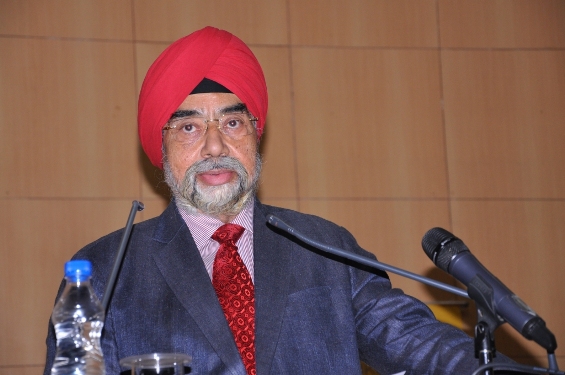03 Mar 2017-03 Apr 2017|Noida | Amity Campus, Sector-125, Noida
28 Teams across India compete in 16th Amity National Moot Court Competition, organised by Amity Law School, Delhi

To provide budding lawyers an experience of clinical legal education and to prepare them for actual courtroom, Amity Law School, Delhi started its three day annual“Amity National Moot Court Competition” based on “Prevention of Money Laundering Act” from March 3- 5, 2017 at University Campus, Sector- 125, Noida.
28 teams representing various National Law Colleges across the country will participate in the Competition including Gujarat National Law University,Symbiosis Law School Pune, National Law School of India University, Bangalore,National Law School, Orissa, Nirma University, Gujrat; RJNLU, Patiala and others.
Hon’ble Justice Sunil Gaur, Judge, Delhi High Court will be the Chief Guest and Mr. A.S. Chandhiok, Sr. Advocate, Supreme Court of India, Mr. K.T.S. Tulsi, Sr.Advocate and Member of Parliament, Rajya Sabha and Mr. Lalit Bhasin, Honorary President Amity Law School, Delhi inaugurated the Competition.
Welcoming the august gathering, Prof. (Dr.) Dilip Kumar Bandyopadhyay- Acting Chairman, Amity Law Schools said that law is pervasive and law education is changing drastically especially in Litigation, Corporate Sector and International arena. It has become important for legal education to become inter-disciplinary and multi-disciplinary, therefore, he stressed,interventions such as Moot Courts by educational Institutions are need of the hour. He expressed his hope that the Moot court competition will be a learning experience for participants as well as audience
Hon’ble Justice Sunil Gaur, Judge, Delhi High Court commended the topic of the Moot Court Competition and called upon the participating teams and learn the most during the three day Competition.
Addressing the gathering, Mr. A.S Chandhiok, Sr. Advocate, Supreme Court of India advised the budding legal professionals to have faith in oneself and work towards being a good human being first and then a good lawyer. He highlighted that the duty of a lawyer is first towards the court and one must not only concentrate on winning or losing. He averred that in court rooms, every day is a new learning and one must inculcate the passion for continuously learning in legal profession. He asked the law students to visit court atleast in initial years of their profession since that will be the actual training room for them. Mr.Chandiok advised the budding lawyers that while handling a case, they should not start by focusing on amendments, statutes or rely on Google but try and give new interpretations to the statutes since innovation of submission in courts matters the most. He stressed that there is no gloom in legal profession and there is lot of space for everyone. Sounding optimistic, he expressed his hope that by 2021-22, every law firm across the world would have 3-4 Indian Lawyers.
Sharing his views, Mr. K.T.S. Tulsi, Sr. Advocate and Member of Parliament, Rajya Sabha said that the present generation is fortunate to be living in an era wherein they have an easy access to any judgment happening anywhere in the world. He pointed out that Law is not only what is written in books but it is what a lawyer is, his ability to interpret the case, his imagination and his articulation while he is fighting for justice. Mr. Tulsi called upon the law students to nurture the culture of doing everything that is legally possible to fight for the client and ensure justice. He stressed that it becomes more challenging to defend the person who is unpopular but a lawyer’s ability to ensure valid justice will subsequently make the lawyer popular. He shared that now a days, not many believe in fair trials but it important to discover the truth and present it in the court in a manner which is legally acceptable. He stressed that it is unfortunate that many of the trials in courts are not about truth but about winning. He called upon the law students to believe in their clients with all the faith and the difference between winning and losing depends upon how strongly, lawyer believes in the case and how well he is able to present that case in the Court.